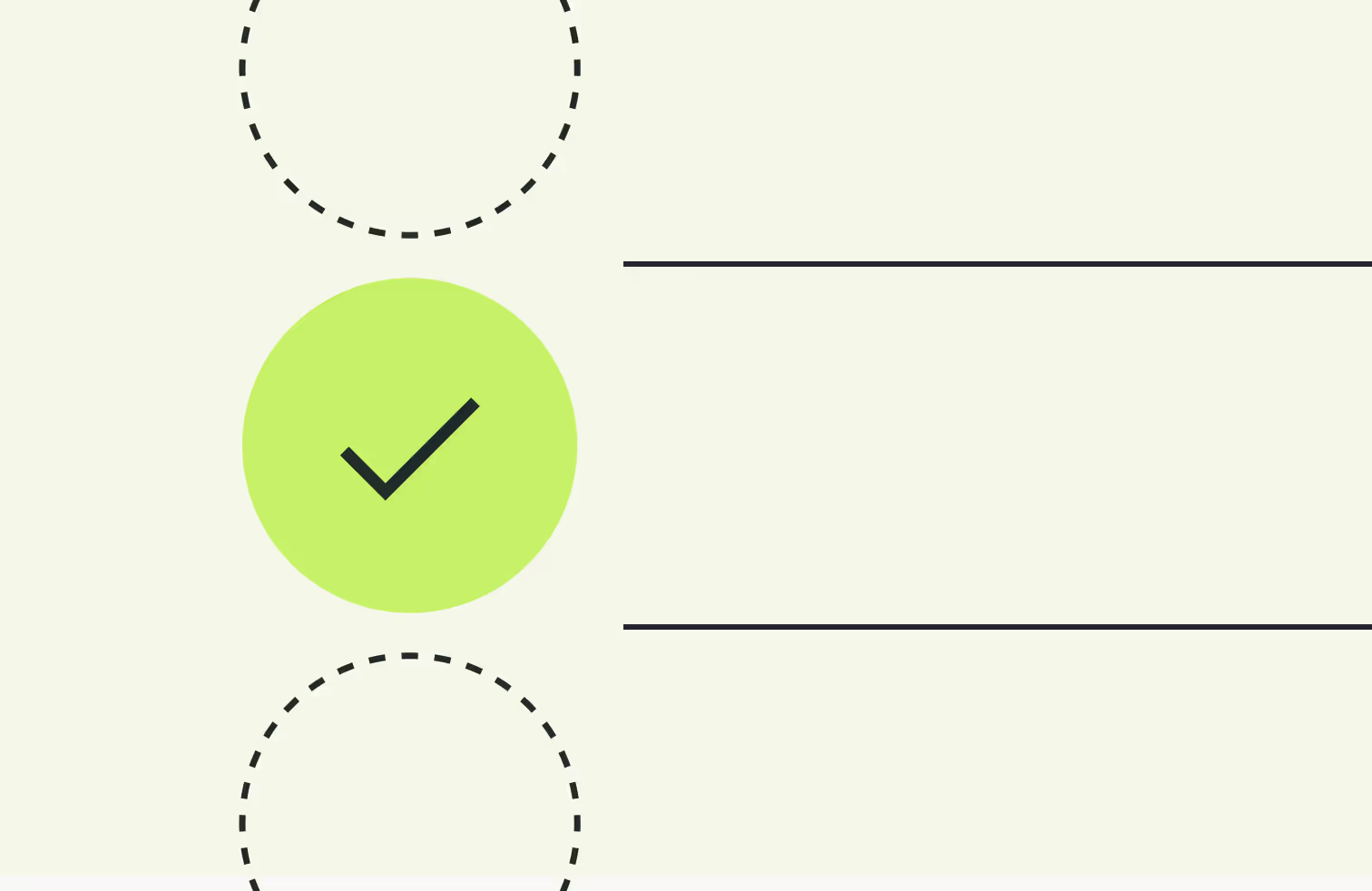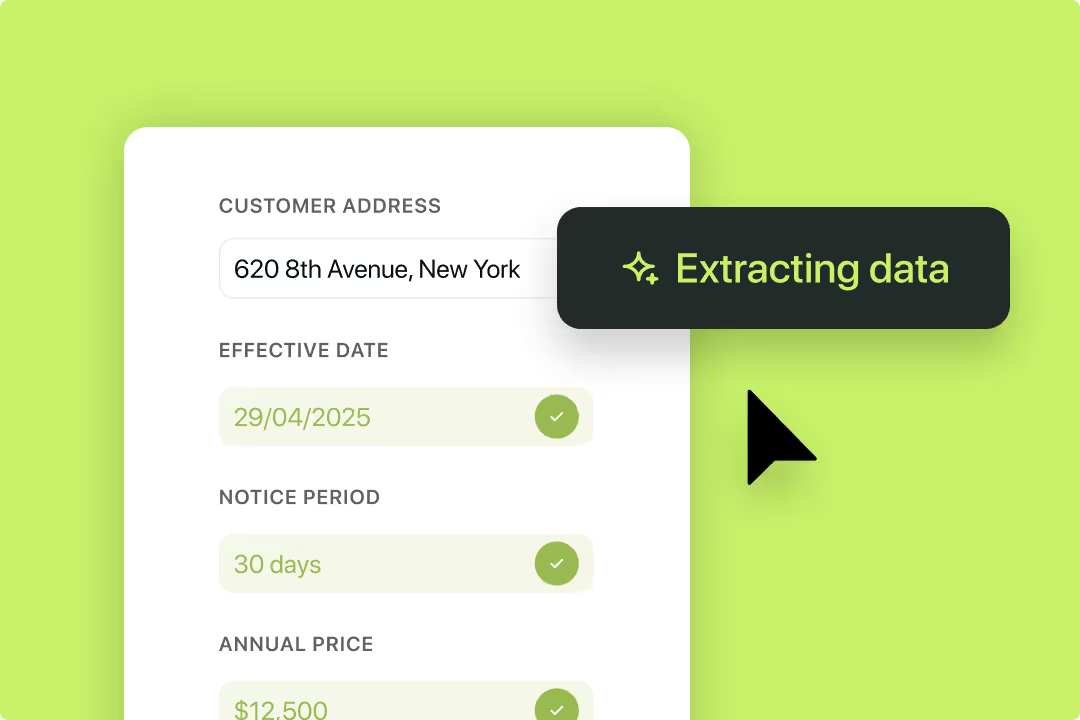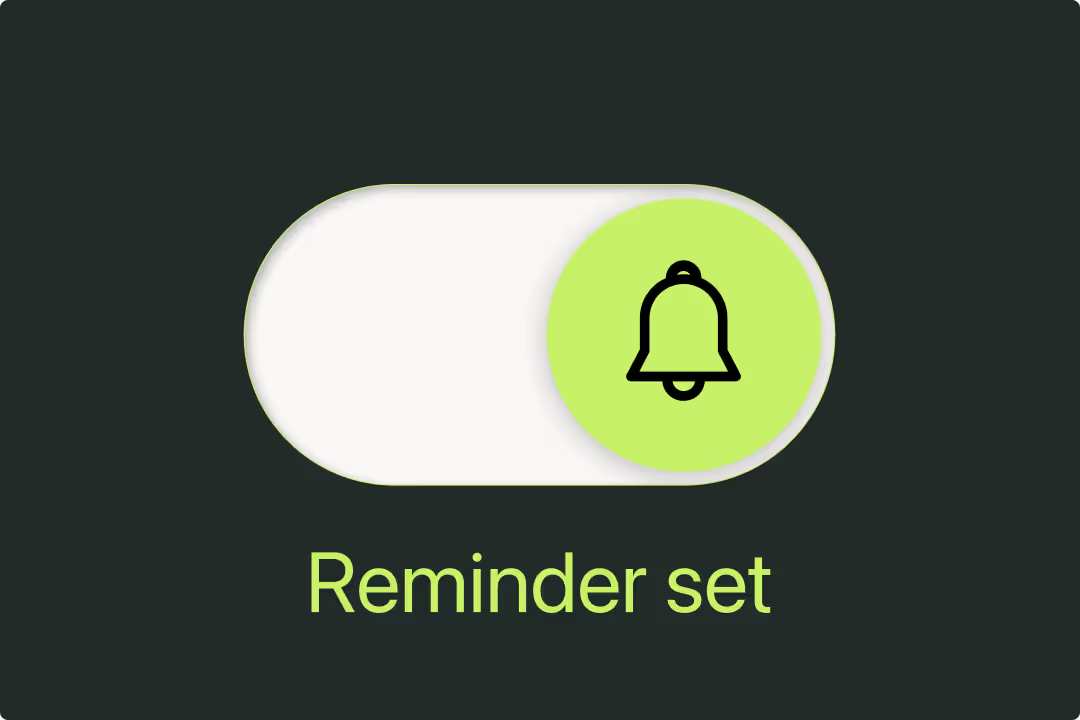Solutions
Customer Support
Resources
Most businesses don’t lose money because they negotiated bad contracts.
They lose money because they let good contracts renew without checking whether the terms still make sense.
An auto-renewed SaaS subscription that no one uses.
A vendor contract whose pricing hasn’t been reviewed in three years.
A services agreement that rolls over into a new period by accident.
In fact, it’s estimated that 40 per cent of a contract’s value can be lost as a result of inefficient contract processes.
These are small mistakes that compound quickly — especially in 2026, where pressure to consolidate is greater than ever before. Managing renewals is now a shared responsibility across legal, finance, procurement, RevOps, and IT. But it’s often owned by no one.
This guide walks through the mechanics of contract renewals (manual and automatic), why renewals matter, how to avoid costly rollover clauses, and how teams use modern contract automation platforms to stay ahead of every deadline.
Contract renewal is the process of extending or refreshing the term of an existing commercial agreement. This can happen:
Most B2B contracts include a renewal clause specifying:
Renewals are a natural checkpoint where teams can update pricing, delivery expectations, data protection language, or remove outdated commitments.

Most commercial agreements define a clear renewal mechanism. The common patterns are:
1. Fixed-term contracts: The contract expires on a set date. Parties negotiate a new agreement if they want to continue.
2. Evergreen auto-renewals: The contract automatically renews for a new term unless one party gives notice before a deadline.
3. Hybrid terms: Contracts with an initial fixed period followed by auto-renewing intervals.
In subscription businesses, auto-renewal clauses are standard because they reduce churn, stabilize revenue forecasting, and keep services uninterrupted.
However, they also transfer operational risk: if your team misses a notice deadline, you renew on old terms by default.
Commercial contracts, like mutual NDAs, MSAs or vendor agreements, typically include explicit language to define the length of the contract term. This might be a fixed date or, as is common in subscription agreements, the contract might have an initial term and then a provision that means it will automatically renew if neither party takes action. This is called a contract renewal date.
A contract renewal date is a specified date that parties will need to have expressed their intention to opt out of an automatic contract renewal by, if they wish to. If a contract renewal date passes without such notice, a new contract will be created automatically and parties will continue to be bound by the terms described.

This isn’t unique to the business world, of course - as individuals we encounter the same kind of arrangement with our cellphones, streaming providers, or other services that we buy on a subscription basis.
If the contract renewal date, as specified in the contract, passes, then both parties are effectively bound to the same terms for another year (or whatever term is specified in the contract).
Contracts might also be renewed ‘manually’ - each side might realise that the agreement is set to expire soon, and discuss the terms of a new arrangement, or decide to mutually terminate.
Contract renewals aren’t just an administrative step, they’re a key moment where businesses either protect their interests or expose themselves to unnecessary risk.
one well, renewals help teams strengthen relationships, secure better pricing, and keep essential services running smoothly. Done poorly, they can lead to unexpected spend, operational disruption, and avoidable legal or commercial problems.
Here’s why effective renewal management matters:
Not every renewal is about saving money. Sometimes it’s about keeping the lights on.
If a contract expires without being renewed, teams can lose access to tools, platforms, or suppliers they rely on. For high-impact systems — payroll, CRM, cloud hosting, security — even a short disruption can cause real damage to productivity and customer experience.
Automatic renewals are convenient, but they’re also where budgets can come undone.
If a contract rolls over without your knowledge, you can suddenly be locked into another year (or more) of spend you didn’t plan for — often at higher pricing, with additional seats or services you no longer need.
These unbudgeted renewals can throw off forecasting and limit your ability to invest elsewhere. They also land you on the naughty step with the finance team.
A lot can change in a year: your usage, your vendor’s pricing model, your own strategic priorities.
Renewal conversations create a natural moment to revisit terms — from pricing and SLAs to data protection and service levels — and make sure the contract still reflects reality.
The earlier you start that conversation, the more leverage you typically have.
Renewals allow you to check whether the contract still meets current compliance standards, especially around data security, liability and regulatory requirements.
This is particularly important in fast-moving industries like fintech, healthtech or SaaS, where risk profiles evolve quickly.
A thoughtful renewal process signals to vendors that you’re engaged and committed. It creates space to assess performance, set expectations, and align future plans — rather than sliding into another year by accident.
Although people often use the terms interchangeably, a contract renewal and an contract extension do very different things in practice.
The key difference is whether you’re creating a fresh agreement or continuing the existing one — and that choice shapes how much flexibility you have to update pricing, obligations or risk terms.

Contract renewals are different from contract extensions as a contract renewal usually results in the creation of a new contract, whereas a contract extension typically seeks to extend the duration of an existing contract.
Since both contract renewals and contract extensions result in the continuation of a commercial relationship, it's common for the terms to be used interchangeably. However, they have very different implications in practice, and they're created in different ways.
For example, a contract extension will usually mean that the exact terms agreed previously within a contract will apply for a longer period of time. Meanwhile, a contract renewal will require a new, but often identical contract to be created, and this can include contract amendments and tweaks to reflect changes in circumstance or priorities.
What is automatic contract renewal?
Automatic contract renewal is the process whereby a contract is renewed without manual input, usually after a certain period of time has passed. The specific terms of this renewal and period will be outlined in a contract renewal term within the original contract. An auto-renewing contract will be automatically renewed unless one of the parties to the contract issues a notice of their decision not to extend the contract.
But the automatic renewal of contracts has advantages and disadvantages, as we’ll discover below. It also represents a particular challenge to those tasked with managing the renewal of contractual relationships in a business - typically legal and procurement teams, or a contract specialist, although others may be affected too.
Setting up contracts to auto renew has advantages for both parties. These advantages include:

An automatic contract renewal process can lead to headaches for both parties if managed poorly.
These difficulties can lead to the souring of relationships between contract parties, as well as unwanted costs and obligations.
Fortunately, modern contract automation platforms have developed features that help you to manage the contract renewal process and avoid nasty surprises. By managing your contract renewals more effectively, you'll be able to track key renewal dates and escape unwanted automatic contract renewals.
You can get out of an auto-renewal contract by serving a written notice to the other contracting party to inform them of your decision not to renew your existing contract.
This must be before by the automatic renewal date and within the notice period outlined within the renewal clause.
Failing this, you'll need to get consent from the other party to stop the contract from renewing, which can be a challenge if it isn't within their interests to provide that.
That's why it's important to keep control of upcoming renewal dates from the offset, rather than treating them as an afterthought. Here are a few steps on how you can do just that...
To manage automatic contract renewals, so you always stay ahead of forthcoming deadlines, you should set up automated reminders that will notify you well in advance of your renewal deadline.
This enables you to decide whether or not you'd like to renew, renegotiate, or even terminate the agreement, rather than that decision being forced upon you.
The best way to achieve this is by implementing contract reminders, like you can in Juro. Let's run through this workflow to get a better understand of how these reminders are set up, and how they work in practice.
As you create a contract, or manage it through the workflow through approval to electronic signature, you’ll notice that significant dates can be tagged as smartfields within the contract.

Tagging the contract this way means that the relevant field contains metadata, which is searchable and can be leveraged in different ways across the application. In Juro, you can use these smartfields to activate date reminders. This can be done simply by clicking on the date.
From here, you can choose how far in advance of the relevant date you'd like a reminder to be sent - whether that's a week, three months, a year, or whatever notice period works for you.
You can also select and add the parties who'll get the email reminder.
If we switch to the table view in Juro, where teams can get a broader picture of the contracts they manage, we can add a 'Renewal date' column to the table, and see which contracts are scheduled to renew and when.
This allows the users and collaborators in the workspace to stay on top of renewal dates at scale. It also means that the relevant individuals will be emailed regular email reminders, allowing them to stay in the loop.

For more tips on how to manage contract renewals more effectively, check out our 10 best practices for managing contract renewals. If you need help with contract management more broadly, check out these best practices for contract management too.
If keeping track of contract renewals is becoming difficult for your team as the business grows, you might benefit from automated renewal reminders that prevent any nasty surprises.
If you'd like to make managing your contract renewals a breeze, fill in the form below to get in touch today.

Non-renewal of a contract is not the same as contract termination, as when businesses decide not to renew a contract, they are still bound to the terms of their existing contract under that contract has expired.
Contract termination, on the other hand, occurs when a contract is ended prematurely before the outlined contract duration is over.
If your contract isn't renewed automatically, you'll have to ask request a contract renewal. This can be done by engaging with the counterparty's customer success or sales team and expressing your interest to continue your existing arrangement.
Likewise, if you're an employee seeking to renew your contract, you can discuss this with your manager or people and talent team.
A contract renewal typically involves the creation of a new contract. If a new contract hasn't been created then it's likely that the contract has been extended rather than renewed.
Lorem ipsum dolor sit amet, consectetur adipiscing elit. Suspendisse varius enim in eros elementum tristique. Duis cursus, mi quis viverra ornare, eros dolor interdum nulla, ut commodo diam libero vitae erat. Aenean faucibus nibh et justo cursus id rutrum lorem imperdiet. Nunc ut sem vitae risus tristique posuere.

